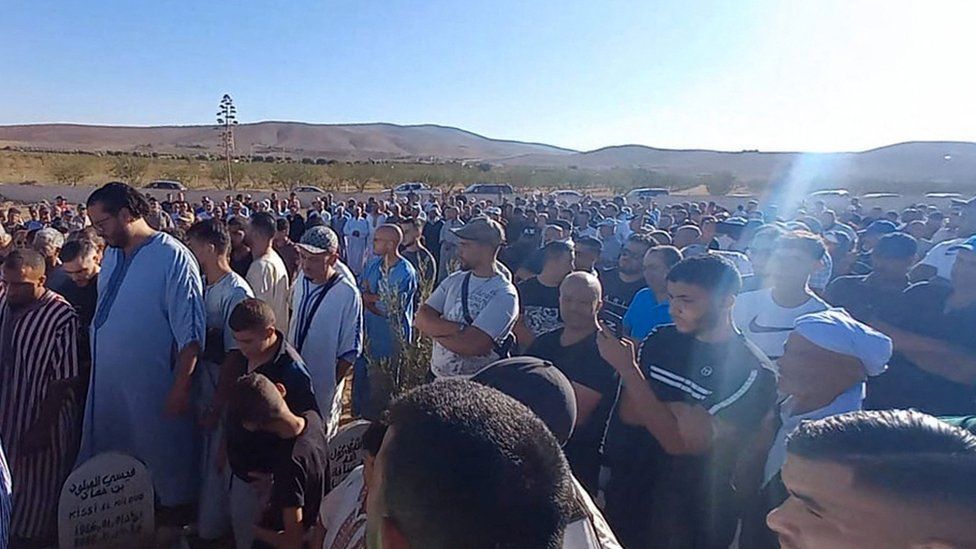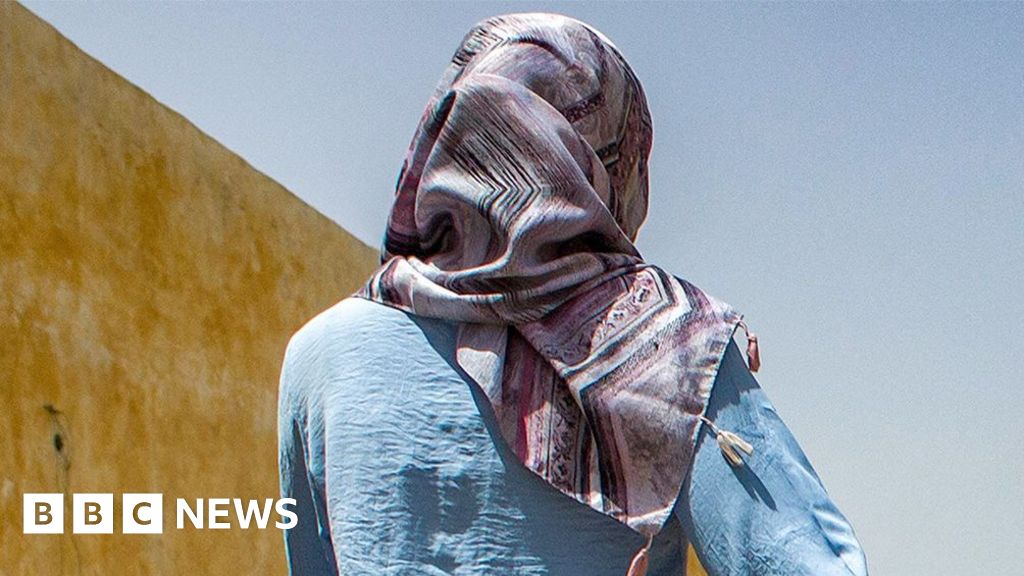ARTICLE AD BOX
 Image source, AFP
Image source, AFP
Hundreds attended Bilal Kissi's funeral in Saidia on Thursday
By Kathryn Armstrong
BBC News
The Algerian authorities have said a group of tourists who strayed into their waters from Morocco on jet skis were warned before they were shot at.
Two men were killed last week after an altercation with the Algerian coastguard.
In its first comment on the incident, the Algerian defence ministry said on Sunday that the tourists defied an order to stop "several times".
However, a survivor has disputed this - saying they were never cautioned.
"I only heard gunshots directly that killed my brother Bilal," Mohamed Kissim told the Reuters news agency.
The group had set off on jet skis from the Moroccan resort of Saidia on Tuesday when they were shot.
In an earlier interview with French television network BFM, Mr Kissi described how they had got lost as night fell, and realised they had strayed into Algerian territory when they saw coastguard boats approach.
"They charged into us," he said - adding that his brother, Bilal, signalled for them to turn back before the coastguard started shooting at them.
Mr Kissi also said that they had been able to get out of the firing line because they had run out of fuel.
Algeria's defence ministry insisted in Sunday's statement that it had issued an "audible warning" to the group but the suspects had "refused to comply and fled".
It referenced "intense activity by drug smuggling gangs and organised crime" at its borders as the reason for firing the warning shots.
Morocco and Algeria have a long history of tension, tied to Morocco's claims to the disputed Western Sahara.
The border between them was closed in 1994, with Algiers severing ties two years ago. It accused Morocco of hostile acts - an allegation rejected by Rabat.
Algerian officials also confirmed that the body of a man was found after last week's incident, and was taken for an autopsy in the city of Tlemcen, close to the countries' shared border.
This is thought to be the second man who was killed in the incident, named in Moroccan media as Abdelali Mechouar - a cousin of the Kissi brothers. His family have yet to receive his remains.
The other man who died, Bilal Kissi, was buried on Thursday after his body washed up on Saidia beach.
A fourth man, Smail Snabe, was arrested by the Algerian authorities and has now been sentenced to 18 months in prison, according to Morocco's National Human Rights Council (CNDH).
The CNDH has demanded he be released and handed over to the Moroccan authorities.
The council has also condemned the Algerian coastguard's actions, saying that its failure to help people lost at sea was in "gross violation of international standards and international human rights law", especially given the victims were on an "unclear border line".
The Moroccan authorities have already said they would not comment on the incident, calling it a judicial matter. However, the prosecutor's office has opened an investigation into the incident.
Meanwhile, the AFP news agency has reported that the families of Bilal Kissi and Smail Snabe, who are both hold joint-French nationality, intend to launch legal action in France.
France's foreign ministry said on Friday it was aware of the death of one of its citizens and the arrest of another French national in Algeria.
It said it was in contact with their families and the authorities in both countries.
Morocco-Algeria dispute: The basics
What is the dispute about? The two countries have border disputes which date back to the era of French colonisation - and even fought a war in 1963.
And since then? Relations have never recovered. Algeria backs the Polisario Front, which is fighting for Western Sahara's independence from Morocco.
What are the effects? The long border through the Sahara Desert remains tightly closed - there is no direct legal trade between the two neighbours.

 1 year ago
10
1 year ago
10








 English (US)
English (US)